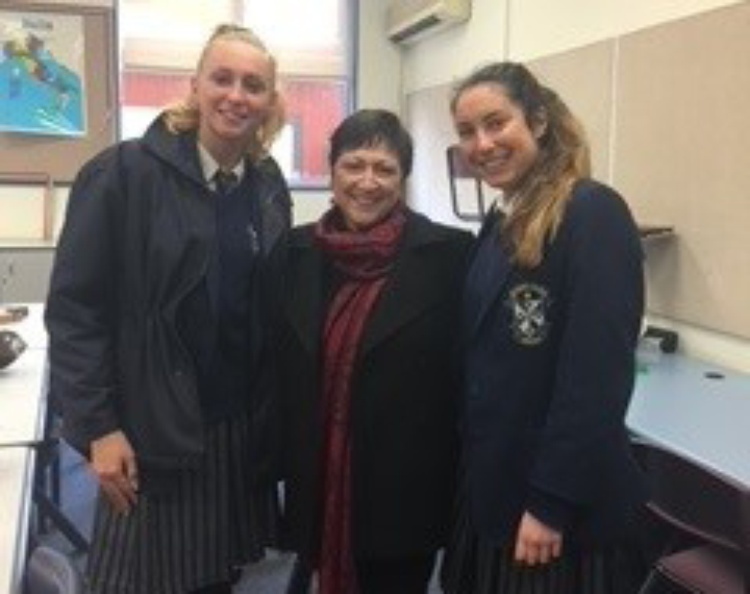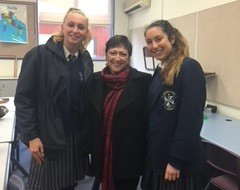“I’ve always taught in Catholic and girls’ schools,” she says.
“In the course of my career, I’ve had thousands of students.”
Tridente has strong Italian heritage – her mother was a Sicilian primary school teacher who emigrated to Australia in 1959 to join her Calabrian husband.
“For the first five years of my life, I only spoke Italian,” she explains.
“I only began to speak English when I started school.”
At the beginning of her career, Tridente’s classes were mostly made up of students with Italian heritage, either the daughters or grandchildren of migrants who spoke a dialect.
“Teaching these children was so interesting: when I introduced them to new words, they were amazed, because they knew completely different words for the same things,” Tridente says.
A new approach to language education was introduced in the 1980s and the number of students enrolled in Italian boomed.
In the following years, more languages and subjects were added to the curriculum, a choice which Tridente says “confuses students and discourages specialisation in subjects”.
This change dramatically reduced class numbers and, in an attempt to combat her dwindling students, Tridente introduced a new strategy.
“I started organising school trips to Italy,” she said.
“Travel is a fantastic way to promote language learning and encourage students to continue studying Italian.
“It’s one thing to read about Italy in a book; it’s another thing completely to see it first hand.
“The students are always so amazed when they see the canals of Venice or the leaning tower of Pisa.”
Tridente has travelled with her students from St Mary’s – where she has taught since 2007 – six times, though her trips were cancelled due to the pandemic.
The trips organised by Tridente cover an array of cities, including Milan, Como, Venice, Verona, Bologna, Florence, Pisa, Orvieto, Rome, Naples and Pompeii.
Her last trip was in 2019 and, since then, many of her students have returned to Italy with their own families.
Another important aspect of Trident’s holistic approach to language education is the exchange program, where Italian girls visit Australia.
“We keep in touch with all our exchange students and visit them when we go to Italy,” she says.
This enables Tridente to maintain her connection with Italy and keep her passion for both the language and the culture alive.
Her student demographic has shifted over the years – a change Tridente welcomes.
“In the beginning, my students were mostly Italian, or at least had Italian heritage,” she says.
“Now, it depends, and changes from year to year.
“This year, my class is made up entirely of students who have Italian heritage – they cook with their grandparents and go to community events.
“Two years ago, half my class were Italians and half were Australians.
“They were all so passionate about language and got very high marks.
“Being able to speak a second language gives graduating students more job opportunities.”
Tridente, herself, found bilingualism useful as a young girl, working in a department store as a student.
She was often called upon to assist the many Italian customers.
While waiting for the travel ban to lift, Tridente’s students have maintained contact with Italy via social networks, conversing online in Italian and exchanging notes with past exchange students.
Her students’ passion for Italy is so strong that some of them have chosen research projects centred on the Bel Paese.
One student interviewed fellow high schoolers in Italy, questioning them about their future plans.
“It was a very interesting project and my student found that the majority of young Italians plans to stay and work in their homeland, while some look farther afield, like Australia,” Tridente says.
Overall, Tridente hopes to impart a love of Italy to her students, showing them that the country is so much more than its stereotypes, and teaching them about history, architecture, music and culture.
She plans to take her students to see La Traviata in Adelaide in the coming months, before her famous trips delight yet more of her pupils.












